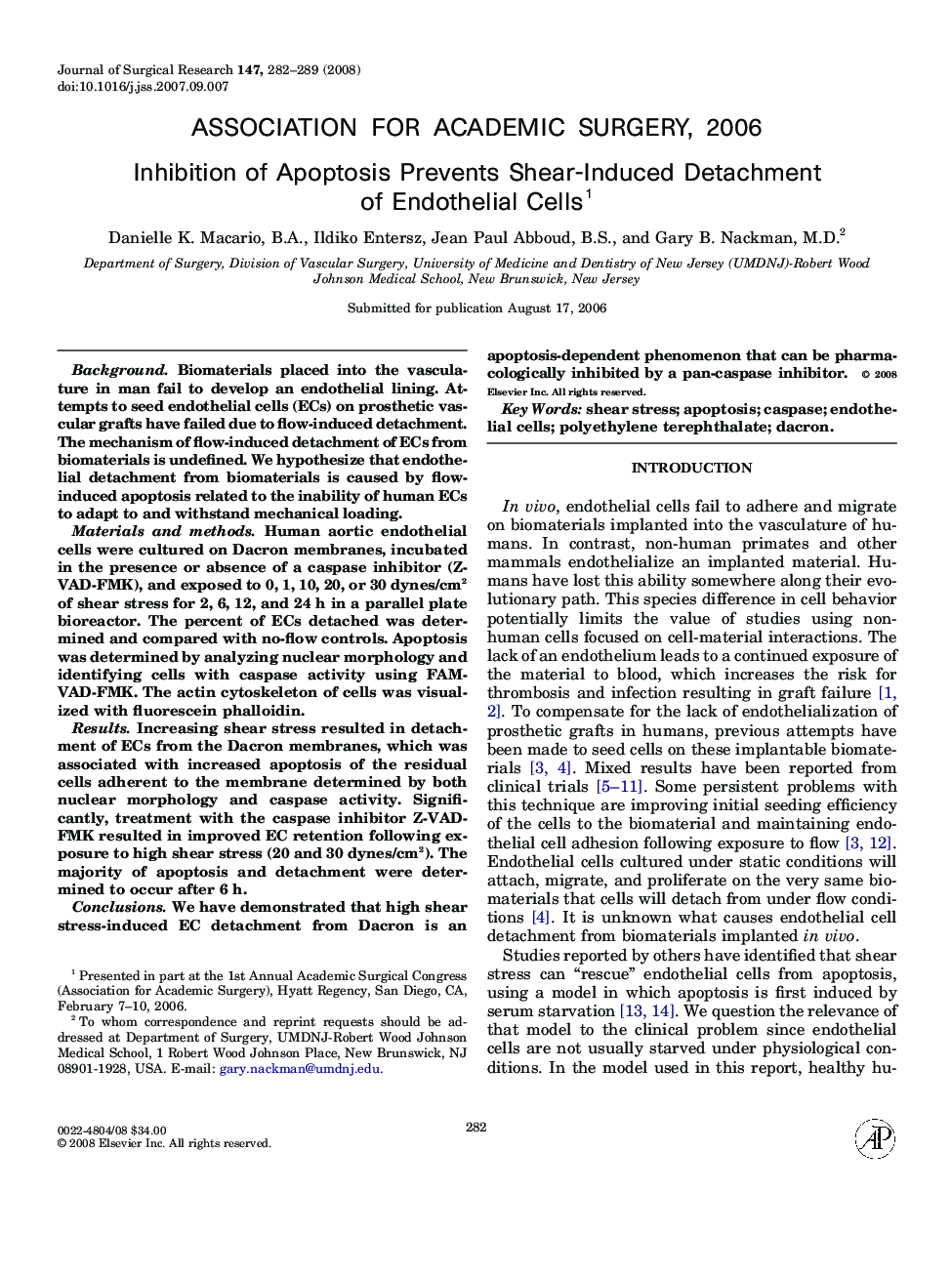| Article ID | Journal | Published Year | Pages | File Type |
|---|---|---|---|---|
| 4304283 | Journal of Surgical Research | 2008 | 8 Pages |
BackgroundBiomaterials placed into the vasculature in man fail to develop an endothelial lining. Attempts to seed endothelial cells (ECs) on prosthetic vascular grafts have failed due to flow-induced detachment. The mechanism of flow-induced detachment of ECs from biomaterials is undefined. We hypothesize that endothelial detachment from biomaterials is caused by flow-induced apoptosis related to the inability of human ECs to adapt to and withstand mechanical loading.Materials and methodsHuman aortic endothelial cells were cultured on Dacron membranes, incubated in the presence or absence of a caspase inhibitor (Z-VAD-FMK), and exposed to 0, 1, 10, 20, or 30 dynes/cm2 of shear stress for 2, 6, 12, and 24 h in a parallel plate bioreactor. The percent of ECs detached was determined and compared with no-flow controls. Apoptosis was determined by analyzing nuclear morphology and identifying cells with caspase activity using FAM-VAD-FMK. The actin cytoskeleton of cells was visualized with fluorescein phalloidin.ResultsIncreasing shear stress resulted in detachment of ECs from the Dacron membranes, which was associated with increased apoptosis of the residual cells adherent to the membrane determined by both nuclear morphology and caspase activity. Significantly, treatment with the caspase inhibitor Z-VAD-FMK resulted in improved EC retention following exposure to high shear stress (20 and 30 dynes/cm2). The majority of apoptosis and detachment were determined to occur after 6 h.ConclusionsWe have demonstrated that high shear stress-induced EC detachment from Dacron is an apoptosis-dependent phenomenon that can be pharmacologically inhibited by a pan-caspase inhibitor.
